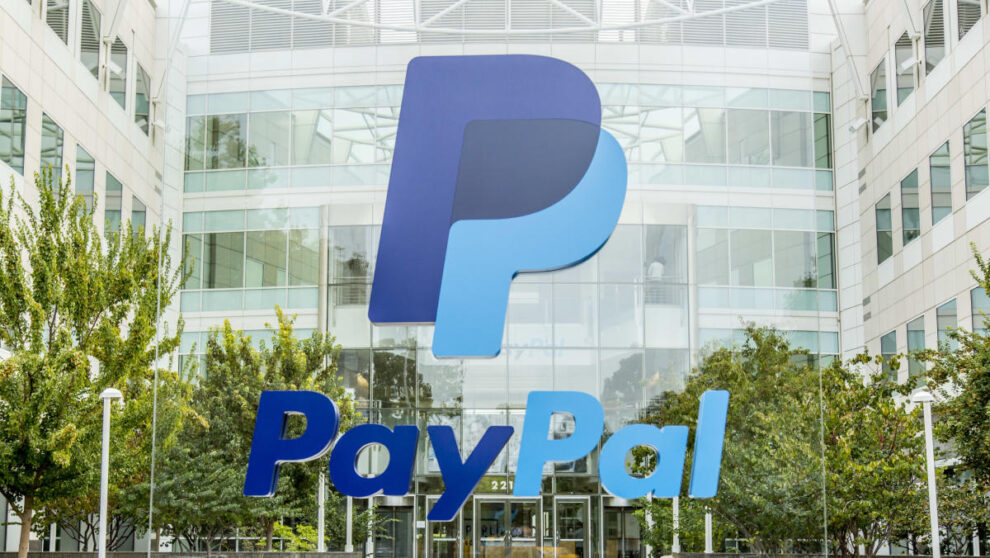On today’s episode of Good Buy or Goodbye, host Julie Hyman is joined by Threadneedle founder Ann Berry to discuss her top stock picks within the tech sector.
Berry recommends Palo Alto Networks (PANW) as a buy, highlighting the company’s strong positioning in the cybersecurity market. She notes that businesses are increasingly seeking to outsource their “cybersecurity solutions from one place,” and Palo Alto’s business model caters to this demand. Additionally, Berry emphasizes that the company has forged “big strategic relationships” and secured contracts with multiple prominent enterprises, such as United Healthcare (UNH) and IBM (IBM). Furthermore, Palo Alto boasts an impressive 37% free cash flow margin, which Berry believes could facilitate strategic acquisitions and fuel future growth.
On the other hand, Berry names PayPal (PYPL) as a stock to avoid, citing concerns about the company’s lack of an execution strategy. She argues that while PayPal “should be winning on gaining share,” the new CEO has yet to implement or announce “a big, bold” strategy to drive growth and capture market share. Berry also notes that the company’s go-to-market tactics, which were once a strategic advantage, have surprisingly underperformed. Consequently, she believes that without a clear turnaround plan or strategic vision, PayPal will continue to lose ground to competitors in the highly competitive digital payments space.
This post was written by Angel Smith
Video Transcript
It’s a big, noisy universe of stocks out there.
Welcome to goodbye or good by our goal to help cut through that noise to navigate the best moves for your portfolio.
Today we’re taking a look at business strategies of two companies in the tech realm.
I’m here with Red Needle Ventures founder and very good to see you.
Thanks for being here, So let’s get to your by stock.
First of all, here we are looking at Palo Out Networks and this company.
It’s up over the last year, although it’s a little bit of volatility, as we can see from this chart.
Cyber security has been a really interesting space, and we’ve seen some sort of volatility within it as well.
Let’s talk about platform I. I even have trouble saying this word platform, which I started seeing a lot more in the discussions of companies like Palo Alto and Crowds Street.
What?
What does this mean?
It’s a lot of syllables to say.
Small businesses enterprises want to buy their cyber security solutions from one place from one company right now.
Historically, you know, businesses have had to go out and put a hodgepodge of different pieces of the elements of cyber security together, and they’re saying, You know what?
It’s really inefficient.
It creates vulnerability.
We want to go to one place.
And Palo Alto has really been leaning into being a solutions provider, hitting on a lot of those different vertical solutions.
Well, that explained it better than any of the companies that I heard themselves discussing it.
And Palo Alto has also been winning big contracts from big companies.
Big ones.
We United Health Care is a big one that got announced a big strategic relationship announced also recently, Julie with IBM.
And what Palo Alto is going to be doing is providing a lot of the cloud and cybersecurity solutions that IBM is going to its consulting clients and saying, Look, this is the go to place to come to So that was a big one from a go to market perspective.
And then finally, also, there’s the free cash flow that we are seeing at the company that could potentially be growing.
Yes, I love this.
You and I talked about this a lot.
I’m a free cash flow girl.
37% free margin for Palo Alto Networks.
That’s right now that’s before they continue to see some of the efficiencies they’re very focused on cost.
A lot of the young businesses, the start ups, the growing companies I speak to.
If they could pick their acquire, they’d like to be bought by Palo Alto Networks.
And these guys have got the cash and it’s growing.
So you think if they’re going out there to make acquisitions, it’s going to be of technology.
It’s going to be of start ups rather than other like rather than a big sort of acquisition.
I think so.
I think that actually, if you look at value creation over time finding homes, finding tonnes, where you can really get synergies without the risk that comes from doing a big merger of equals or consuming a massive acquisition with a potential class of clash of cultures, I think Palo Alto is going to be able to get some chunky, some sizable acquisitions, but nothing that’s too big to swallow.
And that way you add to the functionality of that big platform as well filling in those gaps.
We like to talk about the risks potentially here and you know, they’re spending money, they’re being aggressive downsides of that.
Well, this one way is one where you have to believe in execution.
You’ve got to believe you’ve got leadership, setting clear goals, holding their teams accountable and making sure that they’re super focused on how they’re actually doing what they say they’re going to do.
It sounds simple.
It’s very hard to do in practise.
In this case, Palo Alto has been going after a really bold, I think strategy to get market share.
They’ve been going to some big potential clients and saying, If you are using an existing alternative provider, we will on board you and take you on for a couple of months for free so that you’re not double, you know, you’re not double spending as long as that is an incentive for you to move over.
That’s pretty bold.
It means a couple of losses on some of those accounts as they win them.
But it’s working at the moment.
It has to continue for the share price to keep heading up into the right and before we head to your goodbye, the stock do you hold Palo Alto?
I do hold Palo Alto and I’ve been adding that share price.
You had at the beginning.
When you’ve seen those dips, I’ve been going back.
Oh, interesting.
All right, let’s get to the stock you’re avoiding and that is PayPal and you’re not on avoiding this one.
The stock is down over the past year, but let’s get to why you’re avoiding it here.
While Palo Alto has that strategy, you don’t think PayPal has it.
Here’s the thread.
Both of them are execution plays.
I’ll come back to that.
But this is also about PayPal when you take a big step back.
This is a business that touches 25% of global eCommerce.
I look at that and say, This thing should be winning.
It should be winning on data aggregation.
It should be winning in a I applications.
It should be winning and gaining share and cross selling.
This new CEO has now been in the seat about nine months I’ve been waiting to hear.
Here’s the big, bold vision that we’ve got a la Pala, ala Networks Crickets haven’t heard it yet.
Yeah, I mean, part of that, I guess, is a go to market strategy.
Now we we’ve been talking a lot about go to market strategies with these?
Yeah, enterprise players.
Basically, what it means is sales strategy.
How do we How do we get our product out there to more people and sell more stuff?
That’s exactly right.
And so what PayPal has been doing is moving the deck chairs a little bit.
They’ve said that we’re going to go after market verticals.
We’re going to stop selling on a product by product basis and selling on a solutions basis to the different user bases.
But again, if it’s not going behind a big strategy, that what you’re doing feels a little bit like tweaking around the edges, and I haven’t seen really groundbreaking results coming out of these tactics so far Well, and to your point, PayPal is enormous.
I mean, I can’t I can’t tell you how many times I click on that.
Check out using pay.
But you know, if they if they don’t do these other things, maybe that market share dominance will not last.
Well, I think that’s right, Julie.
And also this is one where I’ve looked at the rise and rise of stripes.
For example, I’ve looked at the rise and rise of the B NPL players like a firm after pay cloner.
And I look at that and I sort of want to tear my hair up because I’m like, Where’s paypal?
Right.
They had the first mover advantage to be able to take what are products?
What?
I’ve just said a firm after pay.
Those were products they didn’t have to become enterprises, had PayPal got its act together and gone after it, and it didn’t.
So I’m concerned about market share.
And then on the flip side, what could work for PayPal, I guess.
To put it simply is if they start doing all this stuff that you’re talking about.
Well, exactly.
So Alex, Chris again, I. I have deep respect for him.
He got into the seat four months ago.
He went on TV, and he said, We’re going to shock the world.
Right?
We’ve got this great stat start with this huge amount of penetration, we’re going to shock the world.
Well, you know, I’m ready to be shocked.
Let’s see it.
Yeah, it still he came.
He then came out with an I don’t even remember what the announcement was.
That’s innovation.
I don’t really remember.
Exactly.
That’s the point.
There’s a shrug.
There’s a bit of a shrug when it comes to some of PayPal innovation, and I’m ready to be shocked, even if it’s got risk right?
I like the fact that Palo Alto Network says risk to the strategy, but at least it’s got one.
Yeah, they’re taking.
They’re taking that risk, Any position in PayPal One way I sold out.
So I think my money’s been doing what I’m saying.
And good to see you.
Thanks for coming in and thank you so much for watching goodbye or goodbye.
We’ll be bringing you new episodes next week at 3:30 p.m. Eastern.








